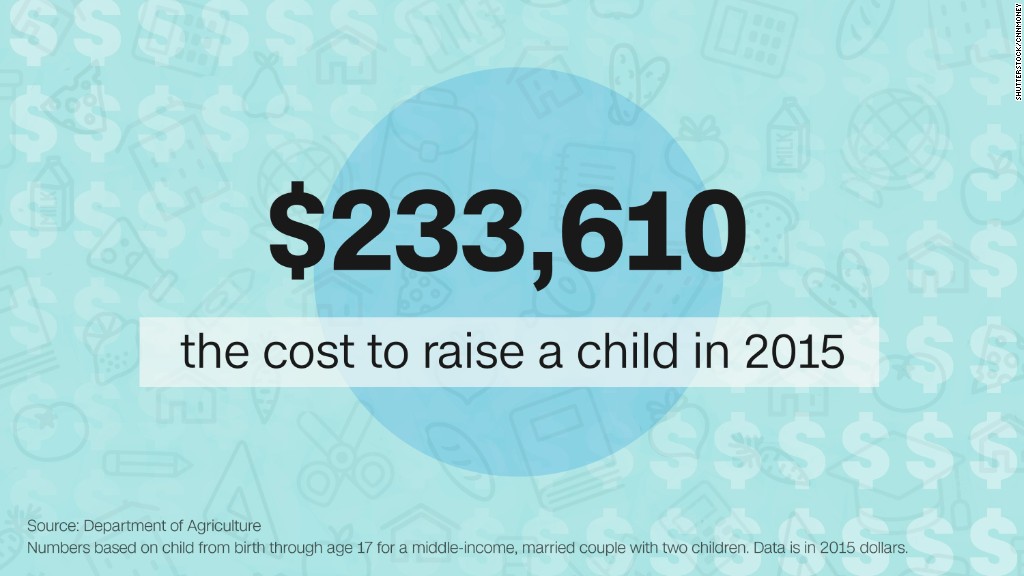
It's estimated that just 8% of Americans actually succeed in keeping their New Year's resolutions. If you really want 2017 to be the year you get on top of your finances, here are four promises you can't afford to give up on.
1. Get out of debt
If you're starting off 2017 with a credit card balance hanging over your head, it's time to break the cycle of throwing away money on interest charges. The average U.S. household has $5,700 in credit card debt, with 38% of households carrying some type of balance.
But the sooner you pay off that debt, the less money you'll wind up spending to eliminate it. Case in point: Paying off a $5,000 balance at 20% interest over three years will cost you roughly $1,700 extra. Pay off that balance in one year's time, and you'll save yourself over $1,100 in interest charges.
Not sure where to find the cash to pay off that bill? You might try working a side job temporarily, cutting back on certain expenses, or selling items you no longer need. Chipping away at bad debt a little each month is far better than letting that balance fester.
2. Save more money
An estimated 69% of Americans have less than $1,000 in a savings account, while roughly one-third of Americans have zero savings for retirement. If you fall into either category but promised yourself you'd save more money this year, that's a pledge you really want to stick to.
One good way to get started is to bank your entire raise -- meaning, figure out how much each paycheck will increase once your raise kicks in, and arrange for that extra money to go directly into a savings or retirement account.
If your year-end or holiday bonus is paid out in 2017, that's money that should also go right into savings. In fact, if you use your bonus to fund your 401(k) up front (as opposed to putting money in from each paycheck throughout the year), you'll get an even greater opportunity to capitalize on compounding and grow your balance.
3. Follow a budget
Do you really know where all of your money goes each month? Without a budget, you'll probably have a hard time tracking your spending and identifying ways to save. In fact, a basic budget -- as in, the type you can create yourself using a spreadsheet -- could save you hundreds of dollars or more over the course of any given year, yet most people are surprisingly resistant when it comes to using a budget.
A recent U.S. Bank study reveals that just 41% of Americans follow a household budget, which means most people are missing out on a key opportunity to manage and improve their finances. If you want to get off on the right foot this year, sit down in front of your computer with your bills and bank statements, see what you're spending in total each month, and find ways to lower that number.
4. Spend less
Living below your means is a crucial part of saving money, so once you have your budget in place, take a look at where your income is going and find ways to cut corners.
First, study your spending categories and identify those with wiggle room. Your rent, for example, is probably non-negotiable, especially if you're mid-lease. But if you're on a month-to-month agreement, you might consider finding a lower-cost living space.
If you can't or don't want to make big changes to lower your spending, chip away at the smaller stuff -- things like cable, your data plan, leisure, and even groceries. Yes, you do have to eat, but you can take steps to cut your supermarket spending, even if it means passing up your favorite products unless they're on sale or employing a healthy dose of coupon extremism.
Of course, lowering your spending takes serious self-control, so if you need an added push, consider employing the envelope system. Once you have your budget in place, you can put money -- as in, hard, cold cash -- into different envelopes, each representing a specific spending category. If you run out of money in a given category, you're done for the month. It's a pretty archaic system given the digital world we live in, but if willpower isn't your strong suit, it'll help you curb your spending.
Sponsored Content from The Motley Fool:
• 5 Years From Now, You'll Probably Wish You Grabbed These Stocks
• Kansas Man Turns $10,000 into $8 Million
• Shark Tank Just Revealed a Trillion-Dollar Idea
Remember, you have the entire year ahead of you to take control of your finances and make changes for the better. Stick out these resolutions, and chances are, you'll be in a much stronger financial position by the time the new year rolls around.
